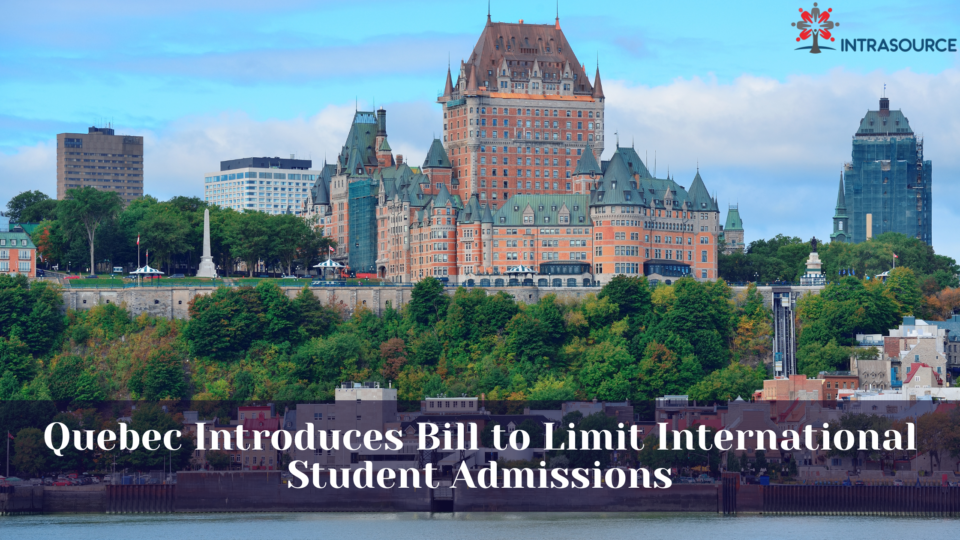The Quebec government, led by Immigration Minister Jean-François Roberge, has introduced a new legislative measure aiming to regulate the influx of international students in the province. This move is part of a broader strategy to manage the growing number of non-permanent residents in Quebec.
Background
On October 10, 2023, Roberge presented the bill at the legislature in Quebec City, citing a significant increase in international students—from 50,000 in 2014 to 120,000 last year. The proposed legislation seeks to empower the government with the ability to set limits on international student applications based on various criteria such as region, institution, level of study, and specific programs.
Objectives and Measures
The primary goal is to control temporary immigration without affecting regional educational programs that rely heavily on international students for viability. The legislation would enable authorities to gather more information before granting application approvals. Despite not setting an explicit cap on student numbers, the initiative is expected to reduce their presence.
Impact on Universities
Universities may face implications regarding their autonomy. Christian Blanchette, rector of Université du Québec à Trois-Rivières, expressed concerns over potential intrusions into academic priorities. He highlighted that international students often fill labor shortages in niche fields crucial for regional development.
Tuition and Language Policies
The Quebec government has already increased tuition fees by 33% for out-of-province students. This decision aligns with broader efforts to minimize non-French-speaking student enrollment in local universities.
Impact on English Universities in Quebec
With recent government initiatives, English-language universities in Quebec are facing significant challenges. Immigration Minister’s remarks suggest an understanding of concerns within these institutions but affirm that no specific schools will be targeted. In light of the Coalition Avenir Québec government’s new policies, including a cap on student enrollment in junior colleges to address the perceived decline of the French language through Bill 96, these concerns are mounting.
The coalition’s strategy also affects tuition fees. According to Vannina Maestracci from Concordia University, international student enrollment has dropped by 15.9% this year, contrasting with a minimal 0.9% decrease last year. This trend is attributed to funding disparities; francophone universities benefit from government support for international recruitment, which anglophone universities lack. Furthermore, increased tuition for out-of-province and international students attending English-language institutions exacerbates the issue.
McGill University highlights the substantial economic and cultural contribution of international students in Quebec. The university’s communications director, Michel Proulx, stresses their role in enhancing Quebec’s competitive edge in the global knowledge economy, echoing Minister Roberge’s recognition of their value.
Alongside efforts to regulate non-permanent residency numbers due to tensions over asylum seeker arrivals, Premier François Legault has proposed managing immigrant inflows more strictly. Despite federal disputes and inaccurate data regarding asylum seekers’ numbers, such measures have prompted a six-month halt on new temporary foreign workers filling low-wage positions in Montreal.
These complications underscore an urgent need for dialogue between policymakers and educational institutions to navigate these complex dynamics while balancing linguistic conservation with international engagement.
Conclusion
While aiming for implementation by September 2025 if passed this fall, Roberge underscores the importance of preserving educational programs critical to regional sustainability. The move reflects Quebec’s strategic approach in balancing immigration and educational dynamics.


